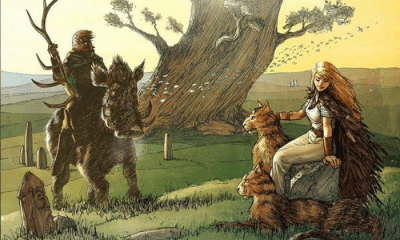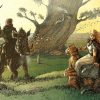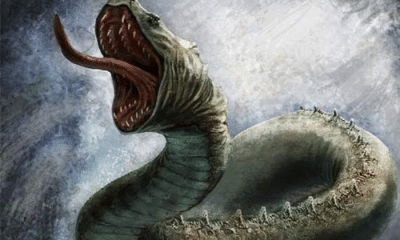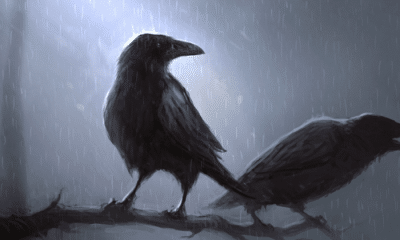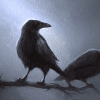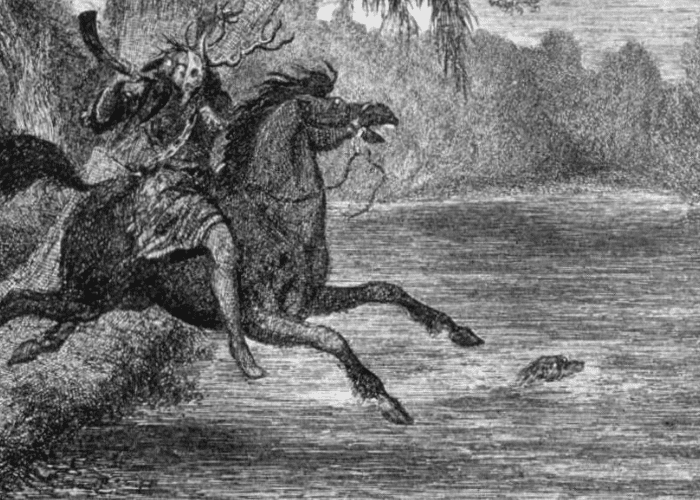
Norse
The Origins of Herne the Hunter
The Origins of Herne the Hunter
Herne the Hunter is sometimes believed to be an old legend of Southern England. Keep reading to find out whether Berkshire’s most famous ghost is an ancient tale or a more recent theatrical invention!
In English folklore, Herne the Hunter is a well-known ghost story. In the area around Windsor Forest, he is said to emerge on winter nights.
While the name Herne the Hunter is well-known, his origins are more mysterious.
The earliest reference to the ghost story does not come from a medieval source or ancient myth. Instead, it comes from the English language’s most famous playwright.
Most historians believe, however, that Shakespeare was inspired by a local legend. How old that legend might be and how it began, however, are open to debate.
Herne the Hunter of Windsor Forest
One of the most well-known characters in English folklore is Herne the Hunter. Despite the fact that his story remains popular, however, he remains an enigmatic figure.
The story of Herne the Hunter appears to have originated as a local tale. He is said to almost exclusively haunt the area of Windsor Forest and Great Park in the county of Berkshire.
Legends usually describe Herne as a ghostly, spectral figure. He is easily recognized by the stag’s antlers that grow from his head.
Some accounts claim that Herne rides a spectral horse and is accompanied by hellhound-like dogs. He was said to frighten and bewitch cattle and even occasionally chase people who found themselves in the forest at night.
Herne did not wander the forest at will, however. He was said to be tied to a particular oak tree, and some accounts said that he could only venture forth on certain nights of the year.
Most of this information comes from a much later source than many people assume. While some local legends may have existed in the Middle Ages, our earliest documented source of Herne’s story comes from one of the plays of William Shakespeare.
In The Merry Wives of Windsor, Herne is mentioned as a terrible spirit that haunted the forest on winter nights. Much of the known folklore surrounding Herne the Hunter comes from this play.
After The Merry Wives of Windsor was performed in London, the character of Herne the Hunter became known outside of the Berkshire area. The legend grew as the ghost story became more popular.
The oak tree mentioned in Shakespeare’s play became a subject of speculation. When a tree sometimes identified as Herne’s was felled, a new oak was named as the supposed place of Herne’s haunting.
The current Herne’s Oak is in Home Park. It was planted in 1906 after the previous tree, planted at the insistence of Queen Victoria, was removed and is at least the fourth tree to be identified as Herne’s.
Herne the Hunter’s legend continued to expand in the 20th century. The belief arose that he was sighted before national disasters. This is also when personal accounts of ghost sightings in the forest became common.
Shakespeare popularized the haunting and gave us our earliest known written record of the legend, but many historians believe that he was recounting a well-known local legend. Where this legend originated, however, is a subject of debate.
My Modern Interpretation
One of the earliest attempts to identify the source of Shakespeare’s ghost story actually comes from an alternate version of The Merry Wives of Windsor itself.
A pirated version of the play dating to 1602 has a different version of the text. It claims that the story was invented by local mothers to frighten their children out of wandering the forest.
Scholarly attempts to understand the story did not begin until nearly 200 years later, however.
Author Samuel Ireland claimed that the story was likely inspired by a real hunter in the forest. That person, he theorized, had died in a way that was likely to create a haunting.
This theory was supported by a later historian who found the records of a man named Richard Horne, the spelling used in the 1602 copy of the play, who had been caught poaching in the forest during the reign of Henry XIII. It has been suggested that Horne committed suicide, the type of death that would have been thought to create a ghost in Shakespeare’s time.
Such a story would explain why Herne the Hunter was unknown outside of the immediate area
This theory, however, is not strongly supported. While a man named Horne was supposedly caught poaching, this was a common surname and no details are given of his death.
Many historians believe that the story originated long before the Tudor era.
Some have identified Herne as a possible version of an enigmatic Celtic god known as Cernunnos. While no myths have survived of Cernunnos, he is usually identified by antlers on his head.
This motif is uncommon and there is no distinct reason given for it in Herne’s lore. It has been suggested that Cernunnos passed into local legend as a ghost story.
Linguistics seems to support this theory. While earlier sources cited the common name Horne, linguists give a possible origin that is much older.
The name may come from the Old English hyrne, or “horn.” The word has the same Germanic root, *ker-n-, as the name Cernunnos.
Another theory links Herne to another mythological figure who became a staple of folklore.
The Germanic god Woden, known in Old Norse as Odin, was worshipped by the Angles who controlled the area of Windsor Forest in the early Middle Ages. When Christianity became the area’s dominant religion, belief in Woden passed into folklore.
Many European areas have the tradition of the Wild Hunt, a group of spectral figures that ride across the night sky. In Berkshire and other areas of England, the Wild Hunt is often said to be led by Woden.
The name Herne, some believe, may be related to one of Woden’s titles. As the leader of fallen warriors, he was sometimes called Herian.
None of these interpretations of the story are definitive, however. There are details, such as Herne’s antlers, that are not addressed in some and overall there is sparse evidence for any of them.
In Summary
In English folklore, Herne the Hunter is a spirit said to haunt the area of Windsor Forest in Berkshire.
Herne is identified by the antlers that grow from his head, a unique feature. He is said to curse cattle and occasionally appear to chase or haunt people walking through the forest.
Although the legend may have been known in the area long before, it was not known outside of Berkshire until it was featured in Shakespeare’s The Merry Wives of Windsor. After this, the story quickly grew in scope and popularity.
Based on Shakespeare’s description, Herne’s Oak has become a popular landmark of Home Park. Several trees have been named as the oak Herne haunts, including some planted long after Shakespeare’s time.
In the 20th century, sightings of Herne were first reported. Around this time, a superstition also arose that Herne appeared in times of crisis or at the death of kings.
Many attempts have been made to find the source of Shakespeare’s ghost. None, however, provide a complete or definitive explanation for the story or Herne’s unusual appearance.
He has been variously identified as a local ghost story based on a real hunter, a version of the Celtic god Cernunnos, or as Woden of the Wild Hunt. His story has expanded far beyond these possible origins, however, and has become a unique piece of English folklore.


